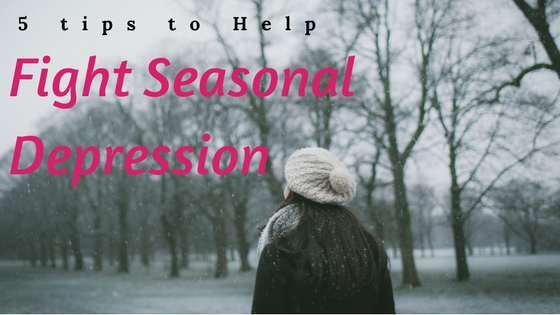My Bachelor’s degree in Community Rehabilitation, having a close family member who struggles with depression, and working in the field of mental health for the past 15 years has taught me that depression is a complex diagnosis that impacts everyone in very real and different ways. What I have also learned is that that stigma attached to mental health such as depression and anxiety keeps many people from talking about how they are feeling and often this means they don’t speak to their doctor about it either.
20% of Canadians will personally experience mental illness within their lifetime. Additionally, the Canadian Mental Health Association states 49%, almost half, of those who feel they could be suffering from depression or anxiety have never gone to see a doctor due to the fear of stigma or discrimination that is attached to mental health. If people felt safe to talk to their doctors then, of course, that would dramatically increase the Canadian 20% statistic.
During the winter months, Seasonal Affective Disorder (SAD) or “the winter blues” is a very real thing that impacts many people. Without the sun, being able to be active outside, limit to seasonal foods at their nutritional prime, and vitamin D-deficiency are some of the factors that can impact these low feelings.
Here are 5 tangible strategies to help support your overall wellness this winter season:
1. Meeting Your Basic Needs
This sounds like something very basic but is often the first to go when we are feeling low in the winter months. Making a plan to get good sleep, meet our water and protein requirements, consume whole foods, maintain basic movement every day are simple things that impact our bodies ability to handle stress. Planning ahead before the winter months can help here. Ensure you take a water bottle with you every day, leave it next to your car keys or cell phone the night before so you remember to fill it and take it with you. Wear a Fitbit or use a tracking device to maintain a basic goal of 8,000 steps a day. This can be a reminder to you, to get up and talk a walk around the office or your house to help your body move which impacts serotonin release and our immune function. Write out a meal plan or use a free meal tracking app on your phone like MyNetDiary or Myfitpal as a way to track what you are eating so you can be mindful of your fat and protein intake. Our brain needs fats and proteins, especially in the winter months so this can be a reminder to keep your basic needs on track without you having to think about it or keep track when motivation is low.
2. Connect with Others
When depression or low feelings take hold of us it is easy to cut people out and isolate ourselves inside. In the winter months, we typically stay indoors more which further cut us off from our social networks. This can be easier said than done so having a plan in place makes this easier to maintain through the winter. Book standing coffee dates with friends, register for a weekly class doing something you love like art or cooking classes, make dates to be active (i.e. join a walking group at an indoor track). Being mindful to connect with those your love on a weekly basis outside of work and day-to-day life can make a big difference throughout the winter.
3. Change your Environment
Rearranging your furniture in your space so your chair is near a window, add in living plants to your space, buy cheap flowers weekly with your grocery shopping and keep fresh flowers around the house, add in pops of color to your decor like changing your throw pills from grey to yellow can have mood-boosting benefits. Also adding in a standing lamp by your favorite chair and using a LED SAD light versus a traditional light bulk can be effective in the mimicking of natural light. For those that suffer a great deal for SAD, you can buy light boxes that use these bulbs and utilize light therapy daily to help during the winter months.
4. Check-In with Yourself
Mood Journalling or adding 10 minutes of meditation every morning to check-in with yourself and ask yourself how you are feeling? What do you need to feel well today? is hugely beneficial. Slowing down and being mindful of what you need can help you feel like you are in charge of how you are going to feel today versus feeling like the depression is in charge. Maybe you need more support from your partner and you need to talk with them about that. Maybe you need to cut-down on commitments and have less on your To Do list. Maybe you need more exercise or more rest? Taking a few moments each day to check in, and make a real plan that day can help you stay in control one day at a day and be connected to what you need for your wellness in small steps. This allows you to be kind and fair to yourself about what is on your plate and what you can manage. If you are interested in learning how to practice more self-care, check out my Self-Care 101 article
5. Build Safeguards into Your Plan
If you feel like you struggle during the winter, building in safeguards and planning ahead is a great way to take really good care of yourself when you need it most. If you know nutrition is a struggle for you seek from a nutrition expert to help you with this (message me anytime and check out my shop page for programs and supports), sign-up for home grocery delivery (i.e. Spud or the Organic Box), or meal prep before the winter months so you have healthy meals frozen in your fridge. Taking a Good Multi-vitamin, Vitamin D, and/ or a Vitamin B-Complex can be hugely beneficial to boost mood and avoid nutritional deficiencies. A night-time magnesium supplement can also be beneficial as magnesium is known as the Anti-stress mineral and helps with a restful nights sleep. The consultants at your local optimum health or supplement stores are very knowledgeable and are there to help too. Find an exercise class you love that you can pre-register for and get started before so it is part of your routine.
Give these 5 tips a try and if you feel like you are struggling to remember to reach out and talk to someone, a friend, family member, or mental health professional who you trust and can hear what you are going through. Let’s break the silence on mental health, start the conversation, and access the support you need.
SaveSaveSaveSave







